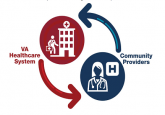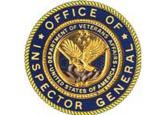In separate interviews, VA Secretary Robert McDonald and VA Under Secretary of Health David J. Shulkin, MD, outlined the VA’s ongoing efforts to reduce wait times. “We are not afraid of criticism,” Dr. Shulkin told the House Committee on Veterans Affairs. “The VA is making sweeping changes. We are making progress, but there is significant work that lies ahead.”
The 2 officials outlined plans to offer same-day health care access to primary care and mental health services and expand the use of telehealth to increase access by the end of 2016. Still, as Dr. Shulkin admitted to the House Committee, the goals were aspirational for 2016, “but I am confident that we can get these goals done.”
For now, the focus is on this year. “Knowing we may not be here after December because the President changes office, we have put together the 12 priorities we want to get done this year,” McDonald told C-SPAN reporters.
So far progress is being made. Shulkin testified that prior to the VA’s first access stand-down in November 2015, there was a backlog of 57,000 level-1 urgent consults. Today that number has been reduced to 12,000. “The stand-downs are not a way you sustain improvements, they are declarations of emergencies,” Shulkin told the committee. “When you have urgent patients that aren’t being seen, they are emergencies, and we have to act like that.” The stand-downs have led to what Shulkin described as “sustainable improvements” in the VA’s efforts to redesign access in the system “so that 10 years from now—1 year from now—we are not going to be talking about this in the same way.”
Fixing the VA’s antiquated scheduling system remains a challenge. The current system has been blamed for scheduling errors and contributing to the backlog. Still, the VA surprised many when it put on hold its $624 million program to implement the new Medical Appointment Scheduling System (MASS). The MASS pilot alone was expected to cost $152 million to test at 6 sites. For now, Shulkin explained to the House Committee that the VA will test out a ViSTA Scheduling Enhancement (VSE) that is expected to cost $6.4 million and only use MASS if the VSE system does not work.
Both McDonald and Dr. Shulkin were at pains to emphasize that problems facing the VA built slowly and would take time to fix. As McDonald pointed out in the C-SPAN interview, “The problems in 2014 were not because of the wars in Afghanistan and Iraq, it was because of the aging of the veteran population,” and continued, “We are the canary in the coal mine for American medicine.”
Still, McDonald explained that the VA needs to deal with these problems immediately. “If we do not build the capability today to take care of Iraq and Afghanistan veterans, 4 years from now or 30 years from now, we will have the same crisis on our hands; that is why we’re trying to transform the system.”



